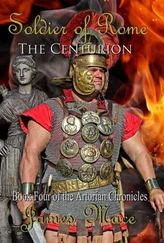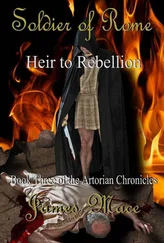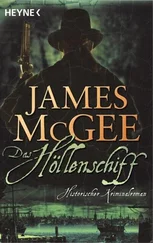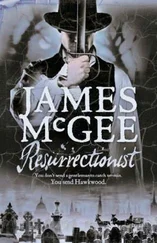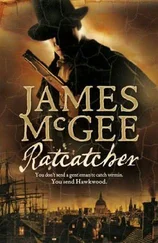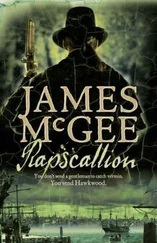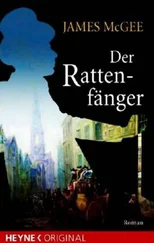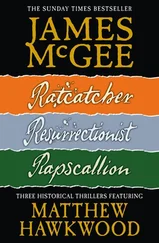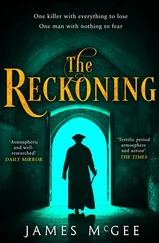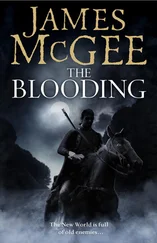But, momentarily, resistance against the rudder eased.
The other two felt it at the same time.
“Now!” Fitch yelled hoarsely. “Put your backs into it!”
Led by Fitch, Hawkwood and the quartermaster redoubled their efforts. Gradually, the starboard bulwark began to drop. Griffin was answering! Hawkwood sensed the cutter was returning to an even keel. Relief surged through him.
And then he looked out beyond the bow and a fist closed around his heart.
Mendham followed his gaze. The quartermaster’s face sagged. “Oh, sweet Jesus.”
Hawkwood’s first thought was that some callous twist of fate had inadvertently caused them to turn the ship completely about, and that it was the same stretch of cliff he could see, lying in wait at the edge of the darkness. Disconcerting enough in itself, until he saw that the top of the cliff was in motion and growing in height and width and he realized to his horror that it was a wave, a huge black wave, far larger than anything that had gone before, and that it was bearing down upon them and gathering speed at an astonishing rate. He felt his insides contract.
For Griffin was still partially beam on and there was no time to turn her into the approaching threat. Fitch yelled again. Hawkwood didn’t catch the words; they were borne away by the shriek of the wind. He saw Griffin ’s commander staring over the rail, head lifting as he took in the full significance of what he was seeing. The lieutenant spun round.
It was too late for a warning.
There was an awful inevitability in the way the mountainous wall of water was racing towards them; devouring everything in its path, like some ancient malevolence, risen from the deep to spread chaos upon the world. As Hawkwood watched, a skein of frothing whitecaps appeared, like pale riders cresting the brow of a hill; tentatively at first but then, as if gaining in confidence, they began to spread out across the wave’s rapidly swelling summit. It was, Hawkwood thought, like staring into a boiling cauldron. With her weather side exposed to the full might of the converging sea, Griffin stood no chance.
The wave broke across her with devastating force. The starboard bulwark vanished, swamped beneath the deluge which splintered the topsail yard like a twig, tore the gaff from its mountings, the forward hatch cover from its runners and more than a dozen crewmen from their stations. Their cries were cut short as the remains of the mainsail collapsed around them, sweeping them over the port bulwark and into the sea in a welter of spiralling limbs, broken spars and flayed canvas.
The force of the water wrenched the tiller from Hawkwood’s hands. He tried to grab on to it but there was nothing beneath his feet to give him purchase and it sprang out of his grasp as if on a coiled spring. The world became a maelstrom of sound and fury. He sensed rather than saw Fitch and Mendham being flung aside and then everything went dark. Bracing himself, he felt a stunning blow as his spine collided with the corner of the binnacle. Pain shot through him.
The backwash had barely receded before the sea crashed over them once more. The crewmen who’d survived the initial cataclysmic onslaught were given no chance to recover. All had tried to wrap themselves around what they had hoped were secure fixtures. The stronger ones hung on grimly only to see their more exhausted companions plucked from safety and into oblivion like sodden rag dolls.
Hawkwood, still dazed and smarting from his encounter with the compass box, was unprepared for the impact. Sent careening across the deck like an empty keg trapped in a mill race, he was finally brought up short at the base of the mast. Spluttering and coughing, tangled within a cat’s cradle of torn rigging and waterlogged canvas, he felt something grab his arm – a dis -embodied hand – and saw, through a blur of agony, that it was the helmsman, Fitch. The look in the seaman’s eyes as the reflux bore him away was one of abject terror.
The ship gave another violent lurch. A terrible rending sound came from deep within the hull as Griffin was slammed on to her larboard beam and Hawkwood, still coughing, found himself dislodged and adrift once more. He grabbed for the main hatchway grating and missed, then saw a strand of rope – one of the safety lines – and made a desperate lunge towards it, just as the port bulwark submerged. A strained voice yelled frantically from close by, “She’s going!” and before Hawkwood could advance his hold, the line jackknifed from his clutches. His link with the ship severed and with the cutter’s deck at a near vertical incline and still rotating, there was nothing he could do, except fall.
He was wet already, but the coldness of the water drove the rest of the air from his lungs as effectively as a mule kick. As the weight of his tarpaulin jacket dragged him beneath the waves, his last comfortless thought was that he hadn’t expected it to end like this .
Chapter 6
Cannon fire; no doubt about it.
Howitzers, from the sound of them, or maybe six-pounders. Whatever they were, they were clearly raining hell down on some poor devils. Though he could tell they were a fair distance away; a couple of miles at least, perhaps more.
He lifted his head slowly and opened his eyes.
And wasn’t sure whether to be disappointed or relieved when he saw that it wasn’t cannon fire that he’d heard. No six-pounders or howitzers; in fact there was no artillery of any description. There was only the surf crashing on to the beach behind him, loud enough to wake if not the dead then certainly any half-drowned, shipwrecked soul who happened to be within earshot.
He remained prone, taking stock while his head cleared. There was daylight, and he was alive. For the moment, that was all he needed to know. Cautiously, he tried flexing his arms and legs. To his relief, all four limbs appeared to be in full working order, which had to be another kind of miracle, though there was enough residual pain in the small of his back to make him wince and think twice about making any sudden movements. There was blood, too, he saw, where his skin had been scraped down the inside of his forearms, which struck him as odd. The side of his skull was sore to the touch, as well. He flinched when his fingertips hit a tender spot beneath his hairline.
He continued the examination of his other aches and pains. Further probing confirmed he had no major injuries. Finally confident that he could get to his feet without falling over, he took a deep breath and pushed himself up. It still took a while. The involuntary coughing fit was a hindrance, though it did help to clear his lungs, as did the retching. When there was nothing left to expel, he straightened and looked about him.
A narrow, rock-strewn foreshore rose gently towards the foot of a sandy-coloured and heavily eroded cliff face. The beach wasn’t long, no more than a couple of hundred paces in length. A jumble of boulders littered the edge of the water at either end. He could see dunes and clumps of tussock grass in the distance where the cliffs flattened out. There were no signs of human habitation.
He spat out another clod of mucus and turned. The sea was a uniform grey and still rough, with high waves and strong swells, but the heart of the storm had moved eastwards leaving behind a grainy sky filled with dark, scudding clouds. There was no sign of the ship; an observation which afforded him neither surprise nor comfort. He shivered, not so much from his damp clothing but from a memory of the cutter’s final death throes.
An object lying a few yards away drew his attention. It was Griffin ’s forward hatch cover. Hawkwood stared down at it. Proof, he thought, that saviours, whether by accident or divine intervention, came in all shapes and sizes. He realized the contusions along his arms had to be the result of his skin chafing against the wooden battens.
Читать дальше


